Our world ahead faces many environmental challenges - one being safeguarding bees, who are responsible for pollinating a third of the food we eat. I sat down to chat with Niue Honey who manage the last significant and sufficiently isolated healthy stock of honey bees in the Pacific region (and likely the world!).
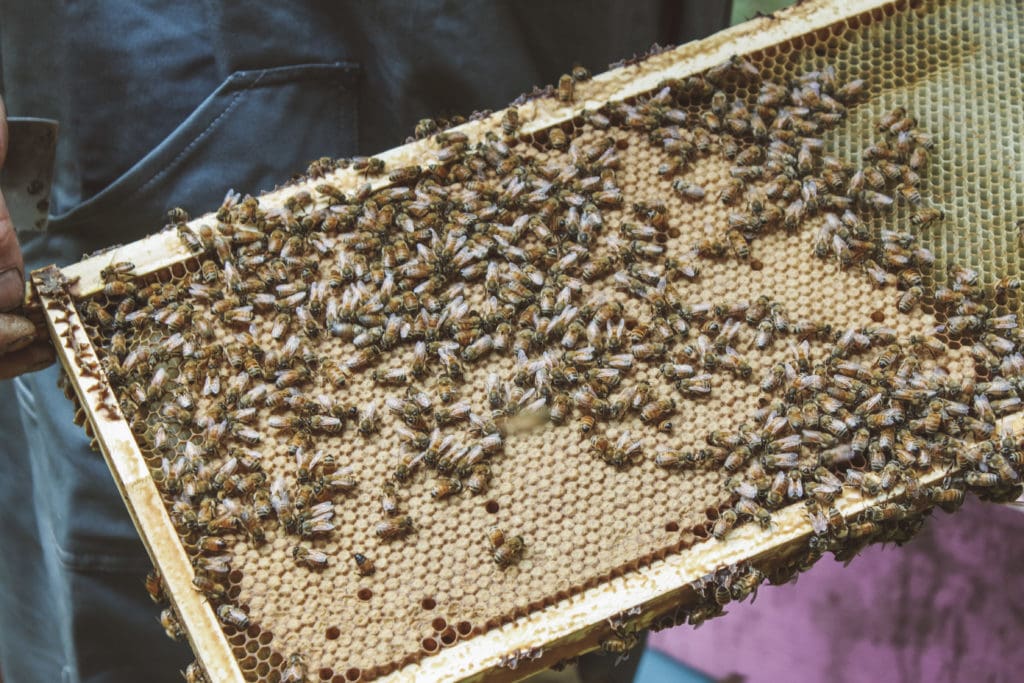
I first stumbled across Niue Honey spontaneously while out shopping. On a shelf heaving with an array of honey brands, it stood out. Aesthetically beautiful, raw and certified organic, endorsed by a celebrity chef (hello Peter Gordon!) and a winner of Best International Honey…?! Get in my shopping basket.
Upon further investigation, there is more to Niue Honey than meets the eye. With much of the world’s bee population in decline, they’re on an even bigger quest to safeguard and preserve bees – in Niue and globally – through their work on the Pacific Bee Sanctuary. More to come.
Two key players behind all this are Andy Cory and Richard Duncan. Andy, known locally in Niue as the ‘Honeyman’ is widely considered one of Pacific’s leading apiculturists. He manages and looks after the hives and has been doing so for the last few decades. Richard, the CEO, oversees the vision and “anything that needs a keyboard” – orders, dispatches, international relations and more.
I connected with them recently and found their story captivating and inspiring. I asked if I could interview them for the blog, in which they kindly agreed. I hope you enjoy!
Why are bees so important?
Richard: Bees are vital for pollinating certain food crops – around a third of the world’s food production. This is hugely important for global food security, as essentially they are the insurers of many foods we grow and eat.
Due to a multitude of factors (e.g. lack of forage, modern agriculture practices, pesticides…) bees are dying off in huge numbers – often collectively referred to as Colony Collapse Disorder – particularly in the Northern Hemisphere.
Reduced numbers of bees globally has immense spillover effects nutritionally, environmentally, economically and agriculturally – it touches everything.
What’s special about the bees and geographical location of the hives in Niue?
Andy: The honey bees in Niue are the last significantly and sufficiently isolated healthy stock in the region, and likely the world – hence the great importance of safeguarding these precious pollinators.
Niue is a paradise of sorts for bees. This small rocky island nation offers sufficient isolation to protect precious bee stock through geographical location (it’s the world’s largest raised coral atoll), and of course customs and increasing biosecurity measures. There isn’t huge pressure on the land, with plenty of untouched nature – this is great for the bees and scaling up hives. It also has a healthy bee stock – beautiful clean Italian honey bees, which are gentle, easy to manage, excellent honey producers, and free from disease and parasites.
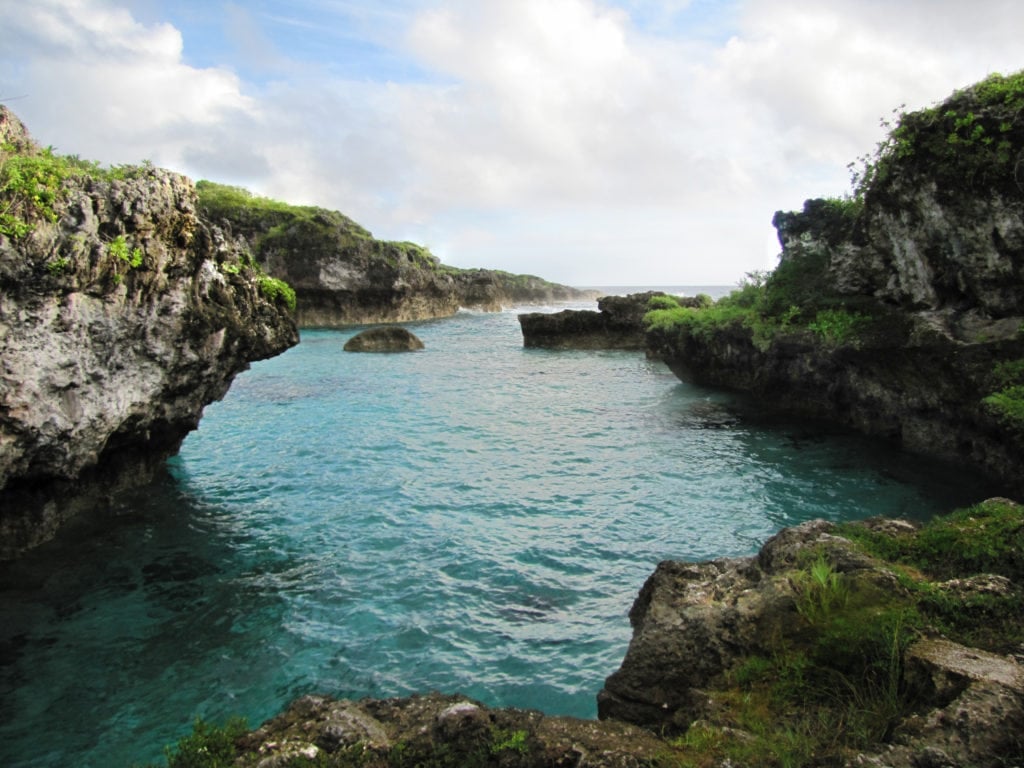
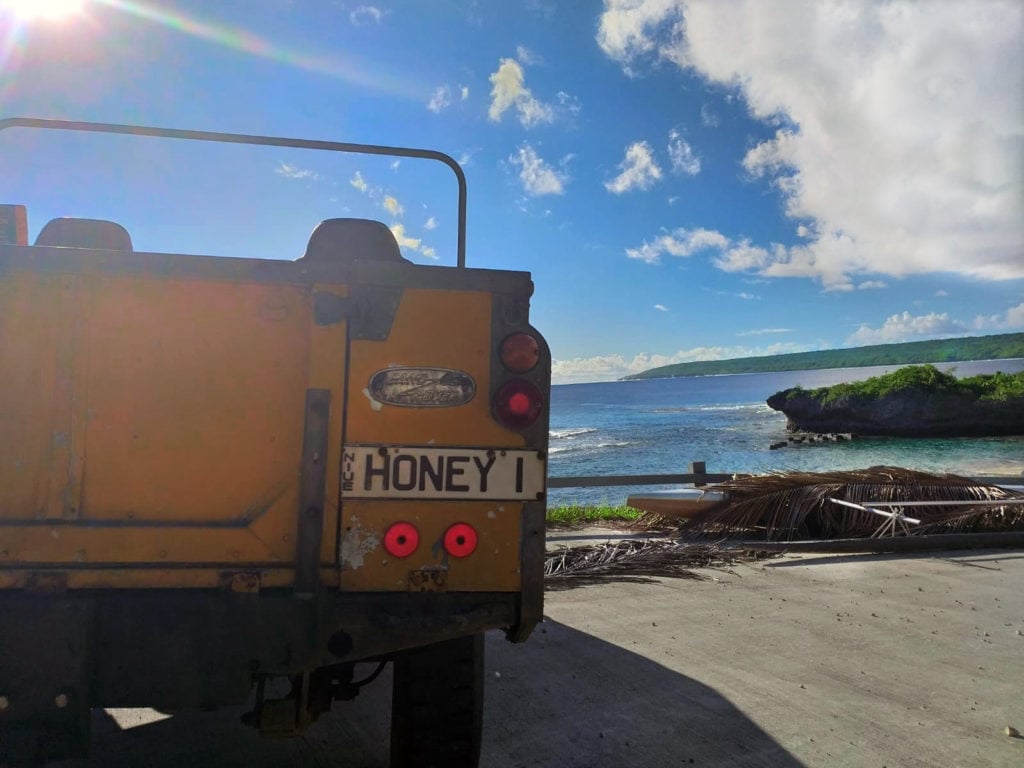
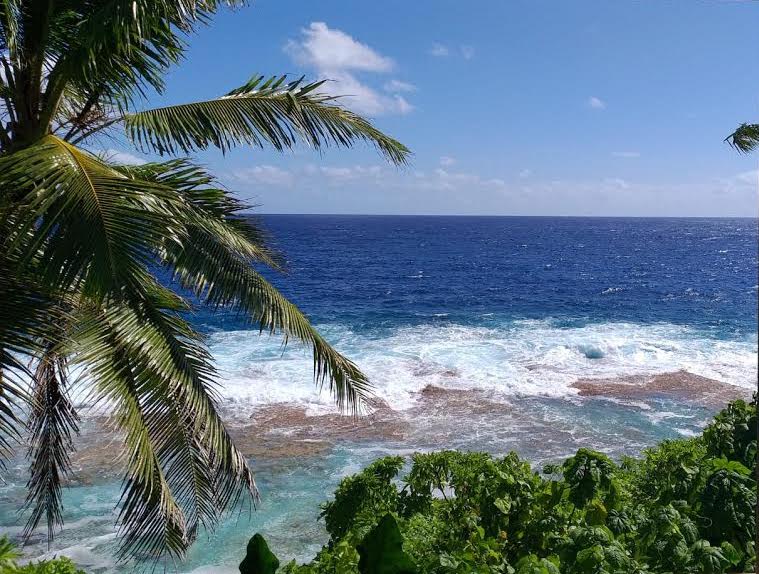
What is the Pacific Bee Sanctuary Project?
Richard: The Pacific Bee Sanctuary’s first and foremost goal is building and protecting the clean genetic bee stock in Niue. From here, these healthy bees can be taken to other Pacific Islands to reboot beekeeping (which has died out over the years), creating pathways for commercial and livelihood opportunities within other Pacific communities. With bee stock in demand, there’s potential for bees to be exported globally to places in need to reboot dwindling colony number – think of it like a genetic bee bank.
Generally, the project aims to support food security and agricultural productivity, as well as the environment through pollinating native bush (leading to regeneration and soil retention, helping mitigate some of the negative effects associated with climate change). It’s a long-term plan, hopefully to span generations and beyond.
Naturally, the Pacific Bee Sanctuary has gained a lot of interest. We’re working in collaboration with the Government of Niue, and with help from the Standards and Trade Development Facility managed by the World Trade Organisation.
What are the social impacts of Niue honey?
Andy: On a ground level, we work with over 30 landowners in Niue – many who are an older generation and may be retired or not working – to house hives on their land. They receive fees for land use and a percentage of honey produced. Beyond this, when honey is extracted, the doors are open, and the wider community can fill their jars up – every single resident gets free honey.
Richard: From a broader social impact, we believe this honey can be a canvas for telling the story of the bee and Niue. Being a small island nation with limited land and resources, we felt it was paramount the brand reflects how premium and special the product truly is.
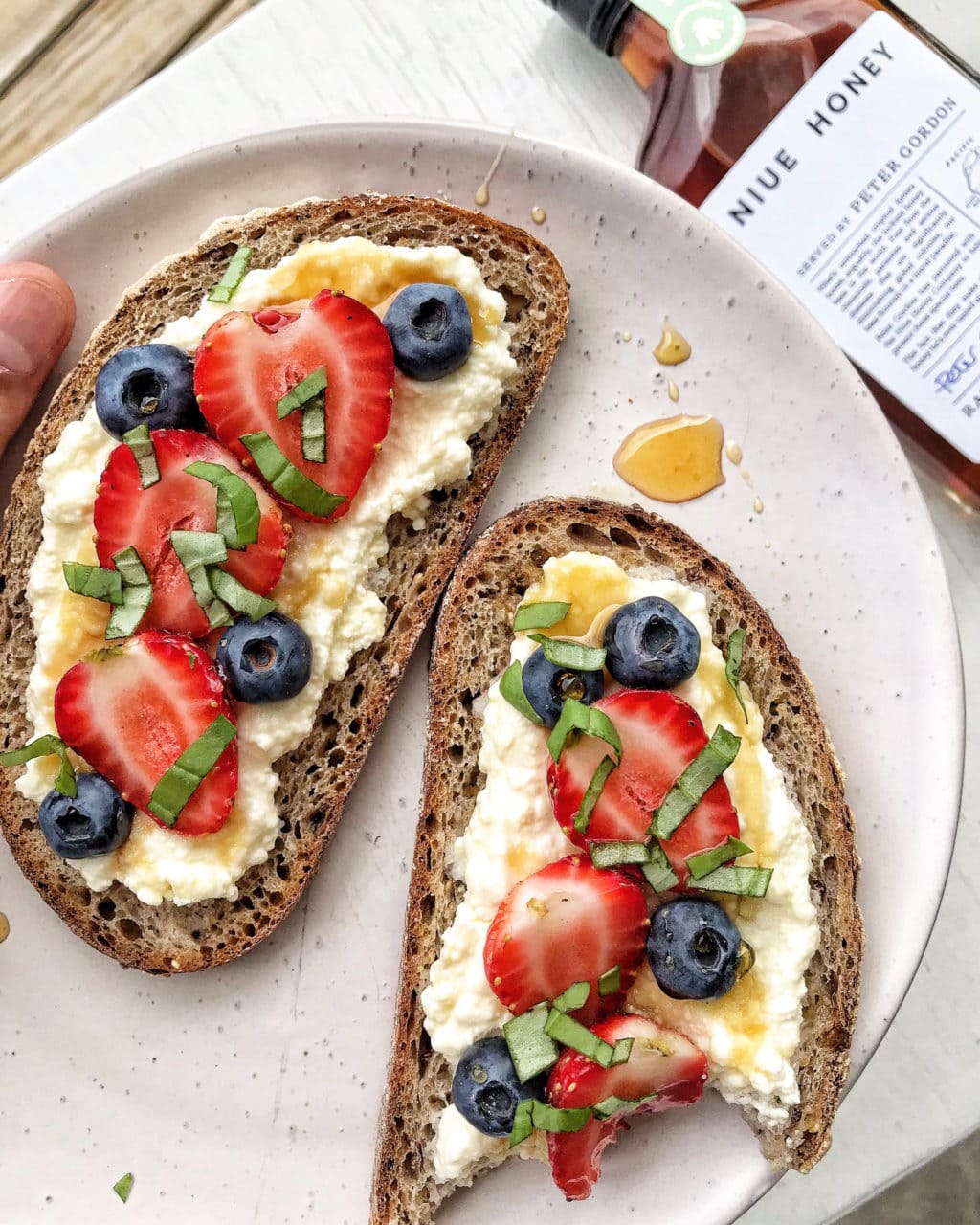
Toast of dreams – sourdough topped with ricotta mixed with lemon, fresh berries, basil and a drizzle of Niue Honey 🍯
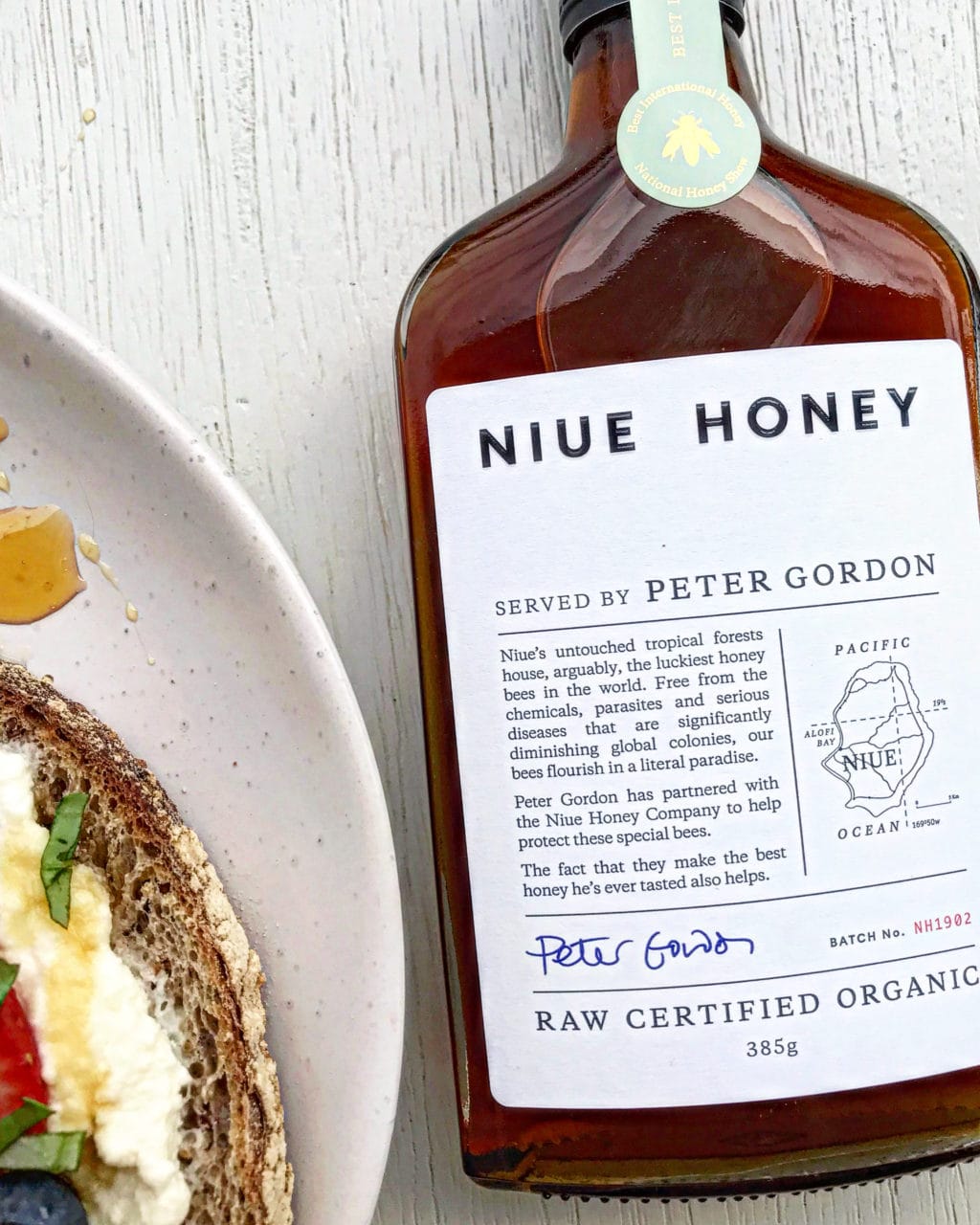
Can you share your experience at the National Honey Show, the worlds most prestigious honey awards?
Andy: We always thought the honey was special. But just how special came into realisation when we were invited to the UK’s National Honey Show, which was prior to us branding and bottling it as you see today.
We took the little pottles of honey around to the other side of the world in a Tip Top ice cream container, through luggage terminal after luggage terminal. When we arrived at the show there were over 1200 entries – some presented in beautiful wooden boxes, removed by someone wearing gloves!
The judging itself was quite an experience – firstly they put it up to a very strong light to spot impurities. If so, it doesn’t continue onwards in the competition. Next, they open the top to see if there are any bubbles around the top, which indicates fermentation – if so, they don’t taste it.
When it was our turn, they opened it up and it smelt so good that they tried and said they loved it! We were told it had potential but we had to work on our presentation. So we went away, got it warmed, settled and presented properly the next year. Fast forward, we got a call to say we had won two first-in-class golds and an award for Best International Honey.
Let’s talk about the honey – what’s the foodie lowdown?
Andy: The honey is runny, pure, organic and unprocessed, tasting like it would if you had it direct from the hive. The taste is reflective of the bees environment – they feed in a high-canopy jungle, where there are always coconut trees. This produces a honey with a malt caramel flavour with a nutty background taste, reflective of coconut tree flowers. There’s no bitterness like many other darker honey.
Thank you for sharing your story Richard and Andy! I can confirm – the honey is stunning. For more on Niue Honey, head to their website.


No Comments